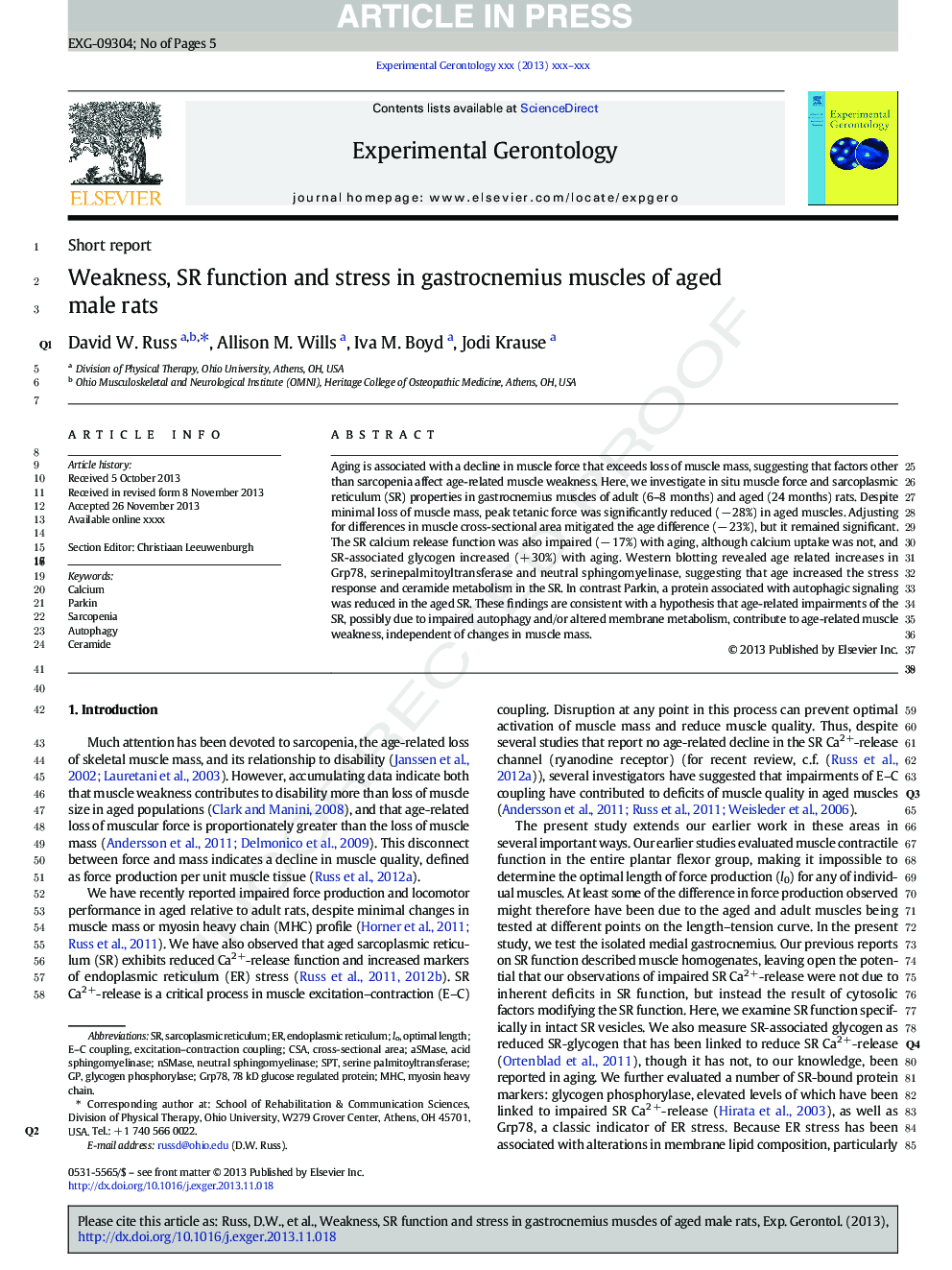| Article ID | Journal | Published Year | Pages | File Type |
|---|---|---|---|---|
| 8264677 | Experimental Gerontology | 2014 | 5 Pages |
Abstract
Aging is associated with a decline in muscle force that exceeds loss of muscle mass, suggesting that factors other than sarcopenia affect age-related muscle weakness. Here, we investigate in situ muscle force and sarcoplasmic reticulum (SR) properties in gastrocnemius muscles of adult (6-8 months) and aged (24 months) rats. Despite minimal loss of muscle mass, peak tetanic force was significantly reduced (â 28%) in aged muscles. Adjusting for differences in muscle cross-sectional area mitigated the age difference (â 23%), but it remained significant. The SR calcium release function was also impaired (â 17%) with aging, although calcium uptake was not, and SR-associated glycogen increased (+ 30%) with aging. Western blotting revealed age related increases in Grp78, serinepalmitoyltransferase and neutral sphingomyelinase, suggesting that age increased the stress response and ceramide metabolism in the SR. In contrast Parkin, a protein associated with autophagic signaling, was reduced in the aged SR. These findings are consistent with a hypothesis that age-related impairments of the SR, possibly due to impaired autophagy and/or altered membrane metabolism, contribute to age-related muscle weakness, independent of changes in muscle mass.
Keywords
Related Topics
Life Sciences
Biochemistry, Genetics and Molecular Biology
Ageing
Authors
David W. Russ, Allison M. Wills, Iva M. Boyd, Jodi Krause,
